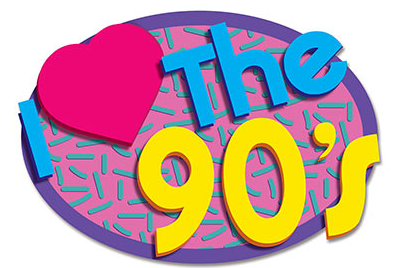The 1990s is often regarded as a golden era, encapsulating a unique blend of cultural, technological, and economic shifts that shaped the modern world. From the explosion of grunge music to the rise of iconic television shows, from the dot-com boom to the globalization of markets, the decade was a time of rapid change and innovation.Let’s get ready to go back into the multifaceted landscape of the 1990s, examining its influence on music, television, business, finance, and beyond.
The 1990s witnessed a diverse array of musical genres, each leaving an indelible mark on the cultural landscape. Grunge emerged as a defining sound of the decade, with bands like Nirvana, Pearl Jam, and Soundgarden pioneering the genre from the Pacific Northwest. Characterized by distorted guitars, angsty lyrics, and a raw, unpolished aesthetic, grunge spoke to a disillusioned generation grappling with issues of identity and alienation.
Simultaneously, hip-hop experienced a golden age, with artists like Tupac Shakur, The Notorious B.I.G., and Wu-Tang Clan dominating the charts. Hip-hop’s influence extended far beyond music, shaping fashion, language, and social consciousness.
Pop music also flourished during the 1990s, with boy bands like *NSYNC and Backstreet Boys capturing the hearts of teenage fans worldwide. Meanwhile, female artists such as Mariah Carey, Whitney Houston, and Alanis Morissette broke boundaries and redefined the role of women in the music industry.
Don’t forget the renaissance in television programming, marked by the emergence of groundbreaking shows that pushed the boundaries of storytelling and creativity. Sitcoms like “Friends,” “Seinfeld,” and “The Fresh Prince of Bel-Air” became cultural touchstones, offering a blend of humor, relatable characters, and memorable catchphrases.
Serialized dramas also gained prominence during this time, with shows like “The X-Files,” “Twin Peaks,” and “Buffy the Vampire Slayer” captivating audiences with their intricate plots and complex characters. These series paved the way for the modern era of prestige television, influencing subsequent generations of filmmakers and writers.
Reality television burst onto the scene in the late 1990s, forever changing the landscape of the medium. Shows like “Survivor,” “Big Brother,” and “The Real World” captivated audiences with their voyeuristic appeal and unscripted drama, laying the groundwork for a new era of unscripted entertainment.
As businesses progressed, the 1990s became a decade of profound transformation in the business world, driven by technological innovation, globalization, and deregulation. The rise of the internet revolutionized commerce, enabling businesses to reach customers on a global scale and facilitating the growth of e-commerce giants like Amazon and eBay.
The dot-com boom saw unprecedented investment in internet startups, fueled by optimism about the potential of the burgeoning digital economy. Companies like Yahoo, Google, and Amazon emerged as trailblazers, reshaping industries and disrupting traditional business models.
At the same time, deregulation and financial innovation led to the rapid expansion of the financial sector, culminating in the rise of mega-mergers and the creation of vast multinational conglomerates. The era saw the emergence of iconic corporate titans like Bill Gates, Jeff Bezos, and Warren Buffett, whose entrepreneurial vision and ambition reshaped the global economy.
Economically, prosperity was prevalent, and financial excess, dignified by soaring stock markets, robust GDP growth, and low unemployment. The United States experienced the longest economic expansion in its history, fueled by a combination of technological innovation, fiscal stimulus, and loose monetary policy.
The stock market boomed during the dot-com era, with tech stocks leading the charge as investors clamored to get a piece of the burgeoning internet economy. The NASDAQ index soared to unprecedented heights, reaching a peak of over 5,000 points in March 2000 before the bubble burst.
However, alongside prosperity, there was also growing income inequality and social polarization, as the benefits of economic growth were not evenly distributed. The gap between the rich and the poor widened, leading to heightened social tensions and calls for greater economic justice.
Also known as the most changing in society, this decade also yielded cultural upheaval and experimentation, as artists, writers, and filmmakers pushed the boundaries of creativity and expression. The rise of the internet democratized access to information and entertainment, empowering individuals to connect, collaborate, and create in new ways.
Alternative culture flourished during this time, with underground movements like riot grrrl, rave culture, and DIY zine publishing challenging mainstream norms and conventions. The rise of the DIY ethos empowered marginalized voices and fostered a sense of community and solidarity among outsiders and misfits.
The mainstream media also underwent a transformation during the 1990s, as cable television, satellite radio, and the internet fragmented audiences and diversified content. This proliferation of media outlets led to a proliferation of niche markets and subcultures, as audiences sought out content that reflected their unique interests and identities.
The 1990s was a decade of unprecedented change and transformation, as technological innovation, cultural upheaval, and economic prosperity reshaped the world in profound ways. From the rise of grunge music to the emergence of iconic television shows, from the dot-com boom to the globalization of markets, the decade left an indelible mark on the collective consciousness of a generation. As we look back on the nostalgia of the 1990s, we are reminded of a time of optimism, innovation, and endless possibility.








